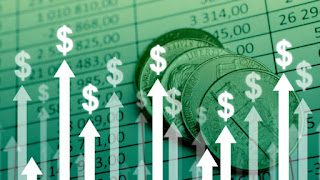how inflation affects the economy
Inflation refers to the general increase in prices of goods and services in an economy over time. It can have several effects on the economy, including:
1. Reduced purchasing power: Inflation erodes the purchasing power of money. As prices increase, the same amount of money can buy fewer goods and services, which reduces consumers' real income.
2. Uncertainty and reduced investment: High inflation rates can create uncertainty in the economy, making it difficult for businesses and individuals to plan for the future. This can discourage investment and economic growth as businesses become hesitant to expand or invest in new projects.
3. Income redistribution: Inflation affects different individuals and groups within the economy differently. If wages and incomes do not keep up with inflation, people on fixed incomes or with low wages may experience a decline in their purchasing power, leading to increased income inequality.
4. Distorted pricing and market inefficiencies: Inflation can distort price signals in the market, making it challenging for businesses to determine the true value of goods and services. It can also create market inefficiencies as businesses and individuals spend more time and resources on managing and protecting against inflation risks.
5. Impact on interest rates: Central banks often raise interest rates to combat inflation. Higher interest rates can affect borrowing costs, making it more expensive for businesses and individuals to borrow money for investment or purchases. This can slow down economic activity.
It's important to note that moderate inflation is generally considered beneficial for the economy as it indicates growth and encourages spending. However, high or unpredictable inflation can have detrimental effects on the overall economy, and central banks aim to maintain price stability by managing inflation levels.
1. Reduced purchasing power: Inflation erodes the purchasing power of money. As prices increase, the same amount of money can buy fewer goods and services, which reduces consumers' real income.
2. Uncertainty and reduced investment: High inflation rates can create uncertainty in the economy, making it difficult for businesses and individuals to plan for the future. This can discourage investment and economic growth as businesses become hesitant to expand or invest in new projects.
3. Income redistribution: Inflation affects different individuals and groups within the economy differently. If wages and incomes do not keep up with inflation, people on fixed incomes or with low wages may experience a decline in their purchasing power, leading to increased income inequality.
4. Distorted pricing and market inefficiencies: Inflation can distort price signals in the market, making it challenging for businesses to determine the true value of goods and services. It can also create market inefficiencies as businesses and individuals spend more time and resources on managing and protecting against inflation risks.
5. Impact on interest rates: Central banks often raise interest rates to combat inflation. Higher interest rates can affect borrowing costs, making it more expensive for businesses and individuals to borrow money for investment or purchases. This can slow down economic activity.
It's important to note that moderate inflation is generally considered beneficial for the economy as it indicates growth and encourages spending. However, high or unpredictable inflation can have detrimental effects on the overall economy, and central banks aim to maintain price stability by managing inflation levels.




Comments
Post a Comment